At Home : Letters from Italy at the time of Coronavirus. Story Two : Venice.
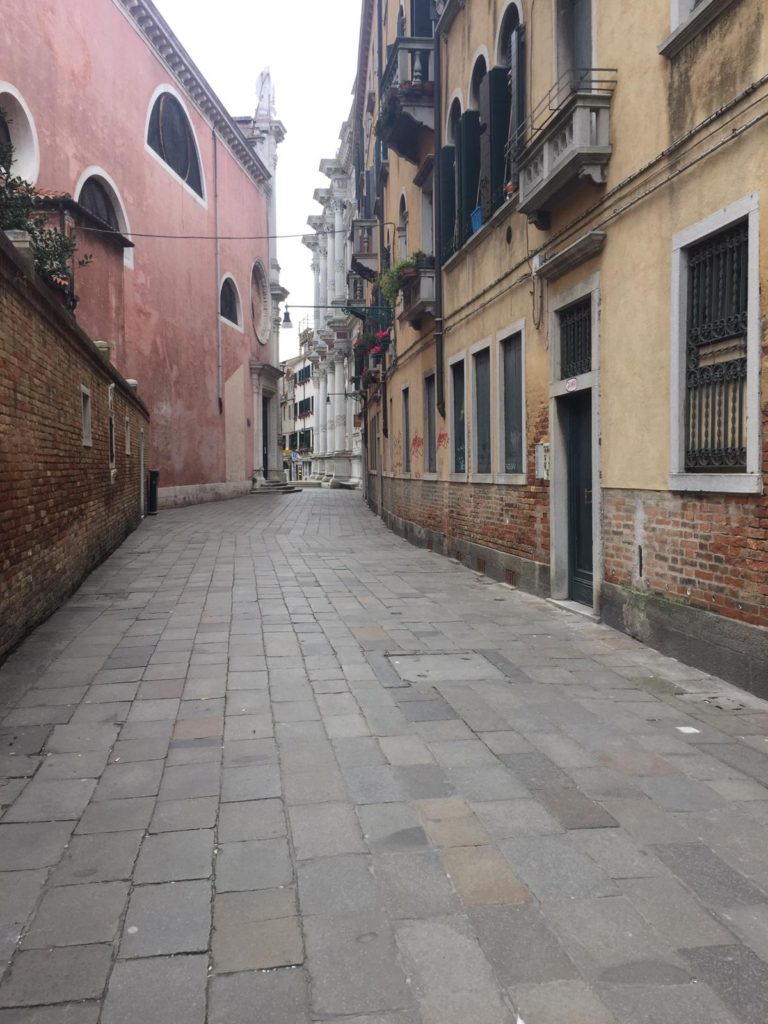
We are now four days into the surreal social experiment that is quarantining an entire country of 60.5 million Italians in their homes, this in a bold attempt to “flatten the curve” of coronavirus, lowering the rate of national infection.

Italians have, since well before the Guelphs and Ghibellines, found it difficult to agree fully on most things, with polemics, laughter, argument, emotion and (very) voluble conversation feeding any discussion that requires as its end product some consensus. When I was a teenager, my Roman friends and I would routinely spend several hours discussing where to have a late night pizza, only to find that when we were at last d’accordo, the pizzeria has closed up shop. And yet the entire country has set aside the talk, absorbed the seriousness of the challenge, and are d’accordo.
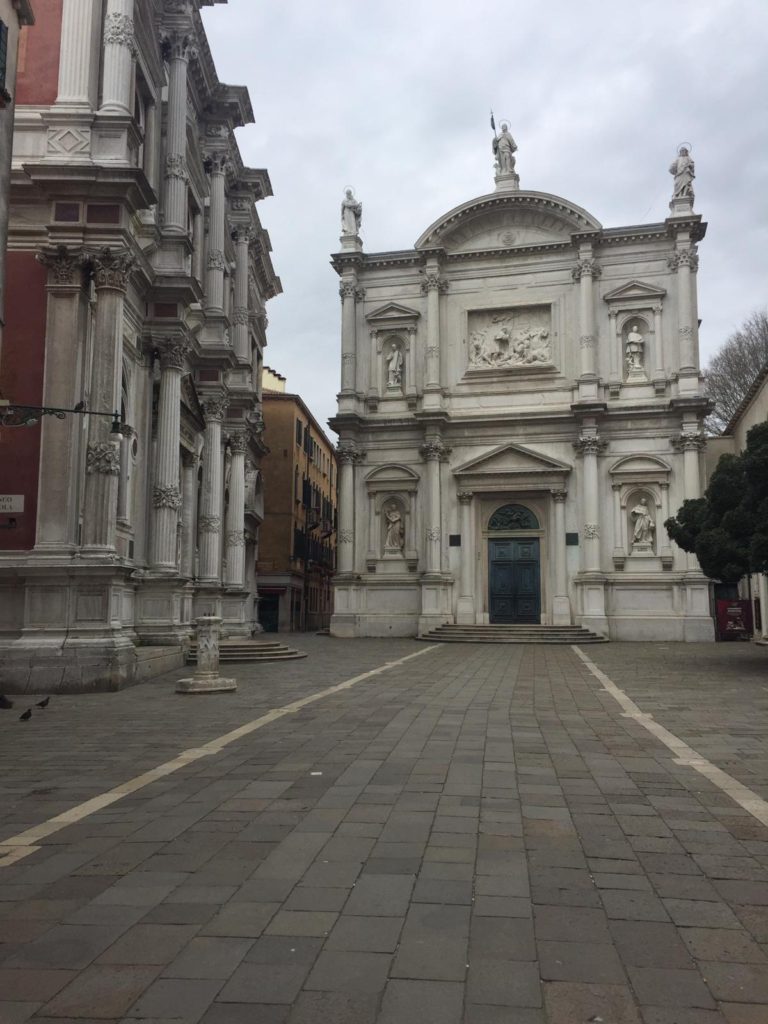
Italians are operating with single minded determination to be compliant, exhibiting nationalism in deed and not word. Calabria and Piedmont and Basilicata and Liguria and Veneto and Sardegna and…. right now there is one Italy.
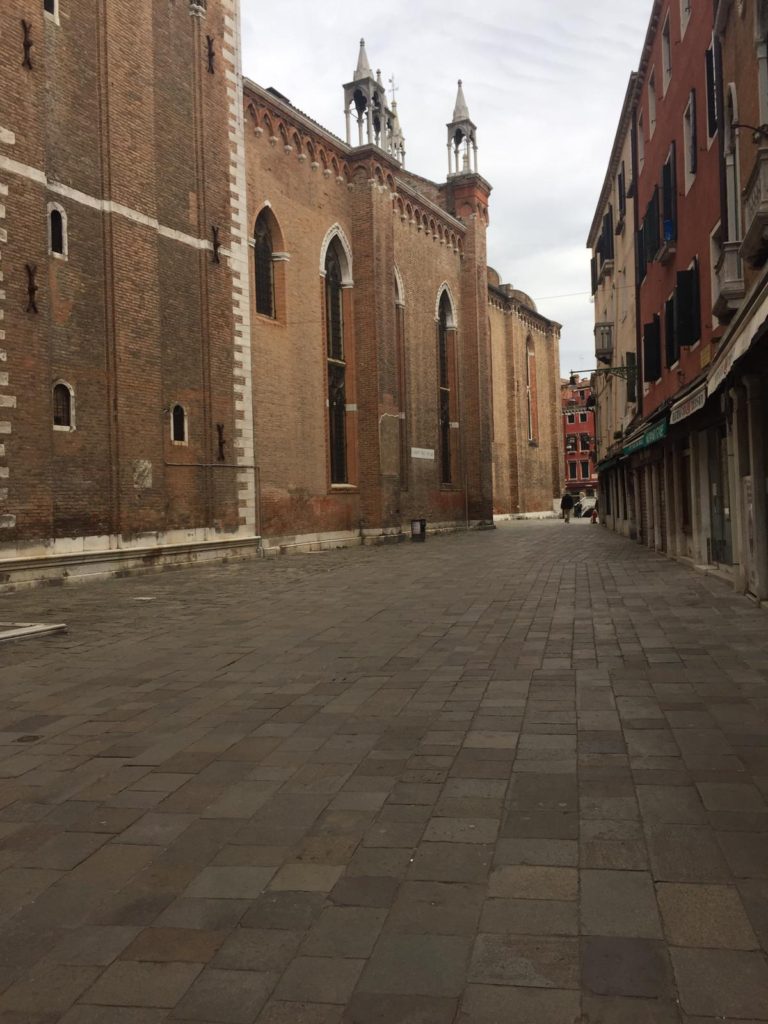
While the fires of deepest contagion rage in the north, this experiment is only as strong as its weakest link. Now that the lockdown is in place, no Italian anywhere in Italy would wish to be the disgraziato who would betray his or her country, breaking the severe ordinances that, for the next weeks, govern all Italians’ day to day lives.
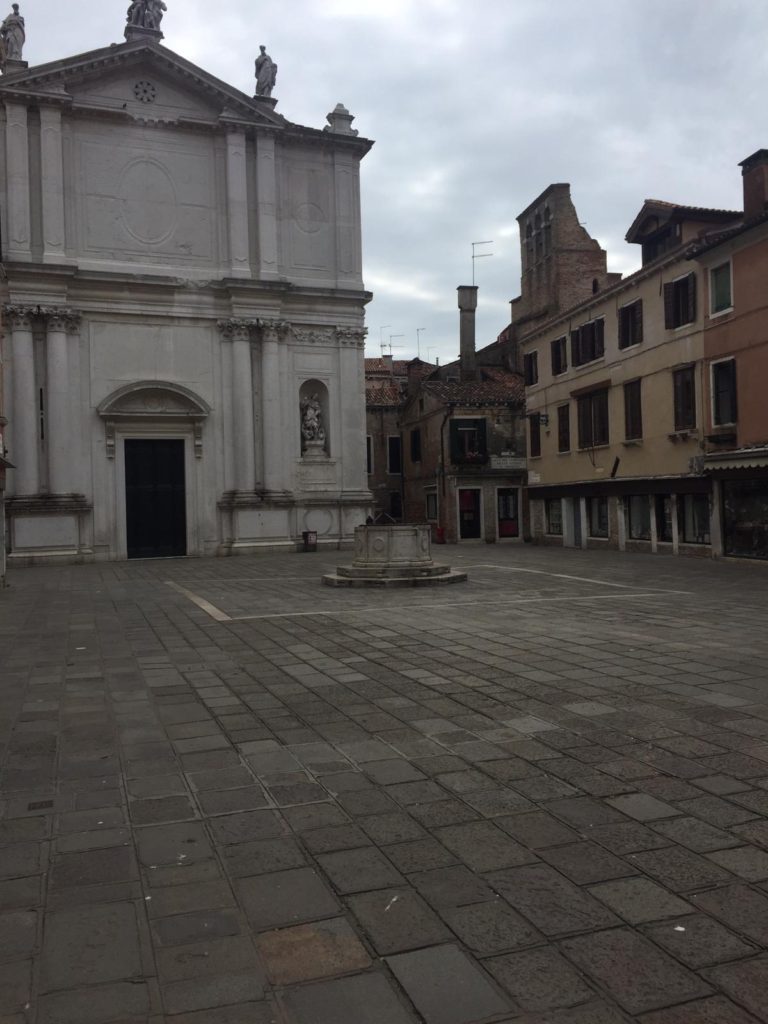
Today’s story comes from our beloved Venetian guide Antonella. Unlike most people who work in Venice, Antonella lives not on the mainland but in Venice proper. She was born in Venice. She could live nowhere else but Venice. She took all these photos today, on her short daily walk to collect groceries and newspaper.
When the lockdown began, I thought immediately of Antonella, whose life in Venice is almost entirely on foot, through the campi and corti and campielli, through the salizzade and rue and fondamente. Arrigo Cipriani, a local, iconic personality once said: “Venice is like walking about a big house.” But Antonella, like all Italians, is now obliged to restrict her walking to her home, an apartment in one of the most ancient of the Venetian sestieri, San Polo, normally a vibrant district of town.
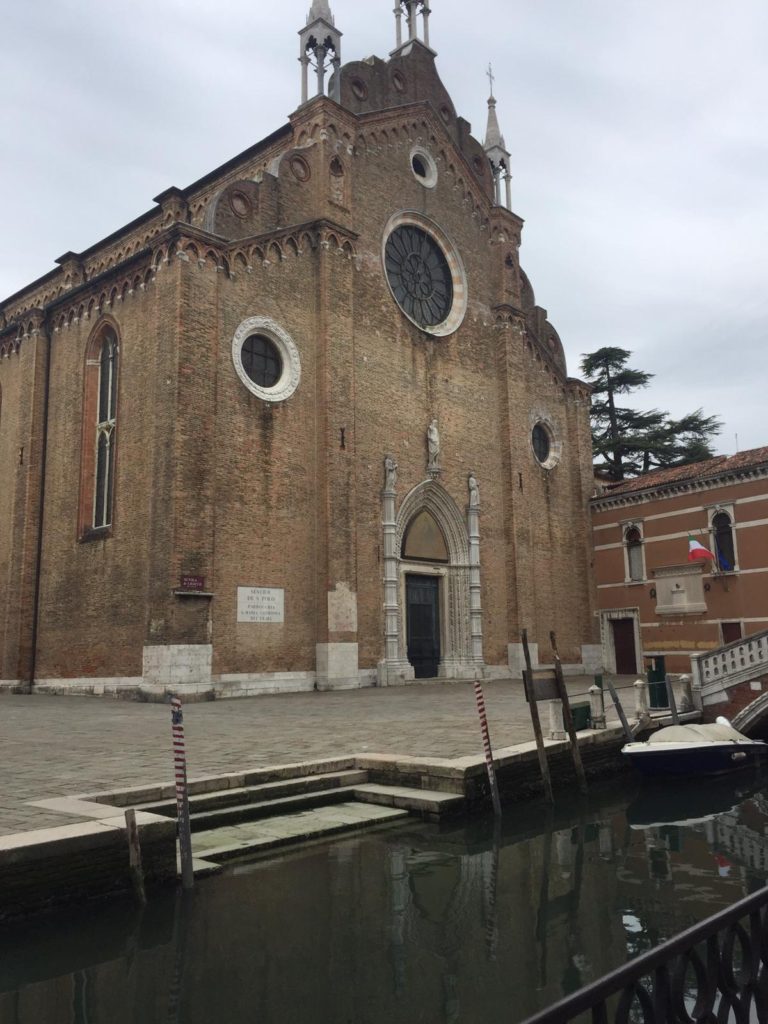
I thought also of the 1630 Venetian plague, which carried off one third of Venice’s citizens.
Here are her words :
Like all Italians, I am confined to my home. I can leave only for food shopping or for the pharmacy.
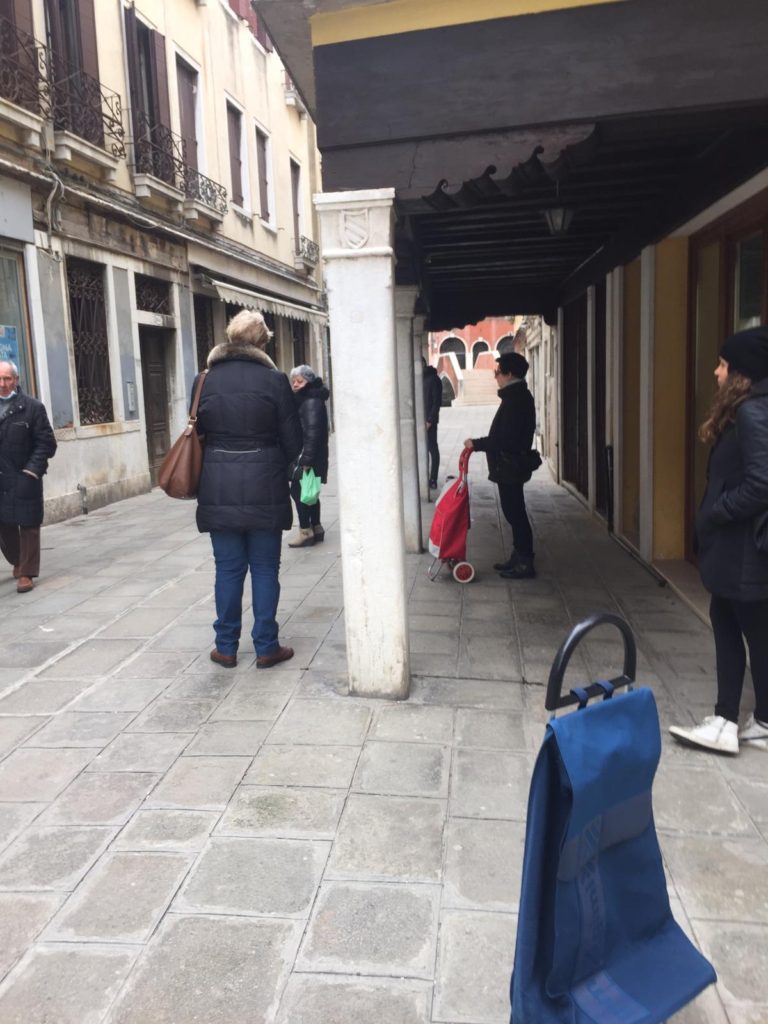
The atmosphere is surreal.
The police and the militarized police are closely monitoring our actions, and if you are not where you should be you are immediately invited to return straight home. You can read, cook and watch television. I don’t watch much television, just the news and the odd detective series, and this only in the evening. I do not feel lonely at all, and am fine. But what I miss very much is the rite of the aperitivo, and the spontaneous Spritz.
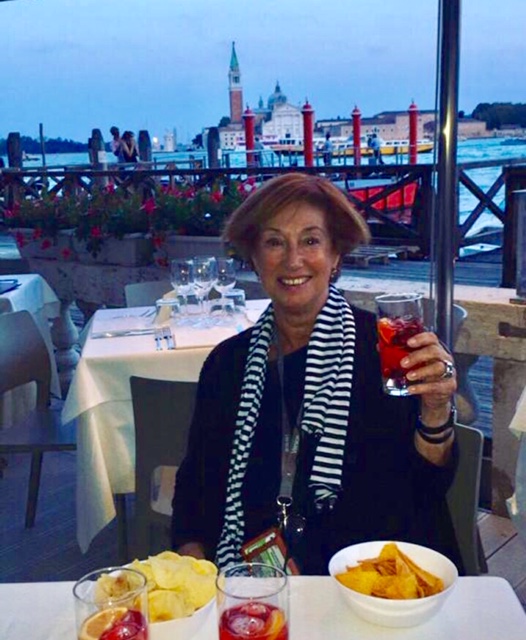
Behind her is the Isola di San Giorgio
Life in Venice is on the streets and in the squares, since we don’t have cars. In a sense, having Venice entirely empty makes me feel that I can reclaim my city from the tourists and at last call her mine. But at the same time it is deeply unsettling not being able to socialize on any level at all.
Socializing is absolutely central in the life of a Venetian.
It is really a disaster. Like the plague, except a 21st century version, and one no one would ever have believed could happen.

Meet Marjorie
Insider’s Italy is an experienced family business that draws on my family’s four generations of life in Italy. I personally plan your travels. It is my great joy to share with you my family’s hundred-year-plus archive of Italian delights, discoveries and special friends.
